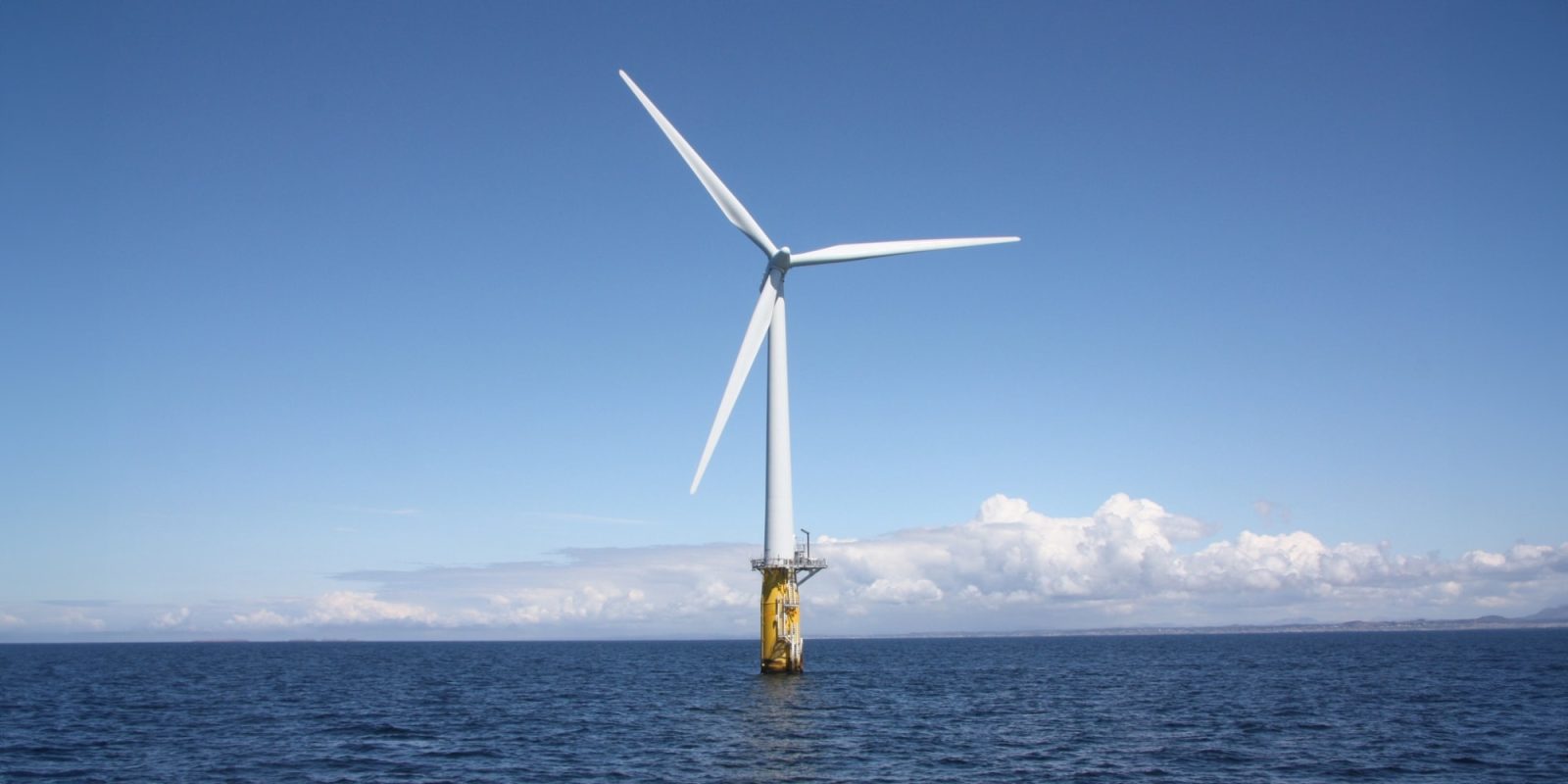
Two US environmental agencies say they will start using AI to better monitor the impact of offshore wind farms on marine animals, particularly endangered North American right whales, of which there are only about 360 left in the world.
The US Bureau of Ocean Energy Management (BOEM) and the National Oceanic and Atmospheric Administration (NOAA) announced their new joint strategy to protect the whales as the East Coast sees a ramp-up in offshore wind farm development.
The approach uses both artificial intelligence and passive acoustic monitoring to gauge where the whales are at a given time and then monitor the impacts of wind development on the whales. The plan also details measures to avoid building in areas that could impact whales, set noise limits during construction, and well as support research to develop new, quieter technologies that could reduce any impact on marine life. The organizations also want to conduct “robust sound field verification” to measure current noise levels in more accurate ways.
The strategy was developed to support President Biden’s goal of deploying 30 gigawatts of offshore wind by 2030. As of September 2023, there were 30 offshore wind lease areas along the East Coast.
“The Biden-Harris administration is committed to ensuring offshore wind energy development is done in a responsible manner,” said BOEM Director Elizabeth Klein. “That’s why we have increased our efforts to develop a strategy – based on the best available science – that will allow us to protect the North Atlantic right whale while meeting our offshore wind goals that are necessary to curb climate change and protect the environment.”
Top comment by Rider1
North American right whales are the ones that got decimated during the whaling heyday, for lamp oil, corsets, and hoop skirts. It's hard to see how the wind farms affect them, but they feed on krill, so abundant populations of healthy krill are required, so anything affecting them, affects right whales. If fishing waters are contested by wind farms, because fisherman have to deploy elsewhere, then that could affect them if it causes the two to come into closer proximity. The acoustics, construction, maintenance, any pollution, the physical structures, could affect them.
Regarding the reports of the whales that have been washing ashore, it's important to break down what species they are and how many. That way it can be put into the proper context, and knowing how those whales feed, and on what, and what their populations are, and where they migrate, is important context to understand the overall picture, and how it might impact the ecology.
Seems the North Amercian right whales ought to get a bigger say. Too bad we can't just ask them.
The Associated Press reports that the news was timed with the announcement that Equinor and energy behemoth BG are switching leases for offshore wind projects in Massachusetts and New York. Equinor will now take on full ownership of the Empire Wind projects, and BP will take ownership of the Beacon Wind projects, with Equinor saying it is taking a loss of about $200 million, the AP writes.
Electrek’s Take
Over the past 13 months, dead whales have been washing ashore on the East Coast, with opponents pointing to offshore wind projects as the culprit. Still, the agencies say that, for now at least, there is no evidence that offshore wind development is harming or killing whales, with many of them hit by ships or entangled in fishing gear. The International Whaling Commission estimates that more than 300,000 whales or dolphins die every year due to entanglement in fishing gear. (I live by the Atlantic coast in France and can attest to the grim reality of this – I regularly see dead dolphins that have clearly been entangled in fishing gear on the beach.) For its part, the NOAA confirmed that 67 large whales were entangled in fishing nets in 2022, which is the most recent data available.
The biggest threat, of course, is climate change. Right whales are among the most endangered animals in the world and close to extinction, with only 70 reproductively active females thought to be still alive. “Climate change is impacting every aspect of their survival, from changing ocean habitat, prey availability and affecting migratory patterns – making the transition to cleaner, renewable energy critically important,” said NOAA Fisheries Assistant Administrator Janet Coit.
If you’re an electric vehicle owner, charge up your car at home with rooftop solar panels. To make sure you find a trusted, reliable solar installer near you that offers competitive pricing on solar, check out EnergySage, a free service that makes it easy for you to go solar. They have hundreds of pre-vetted solar installers competing for your business, ensuring you get high quality solutions and save 20-30% compared to going it alone. Plus, it’s free to use and you won’t get sales calls until you select an installer and share your phone number with them.
Your personalized solar quotes are easy to compare online and you’ll get access to unbiased Energy Advisers to help you every step of the way. Get started here.
FTC: We use income earning auto affiliate links. More.

Comments